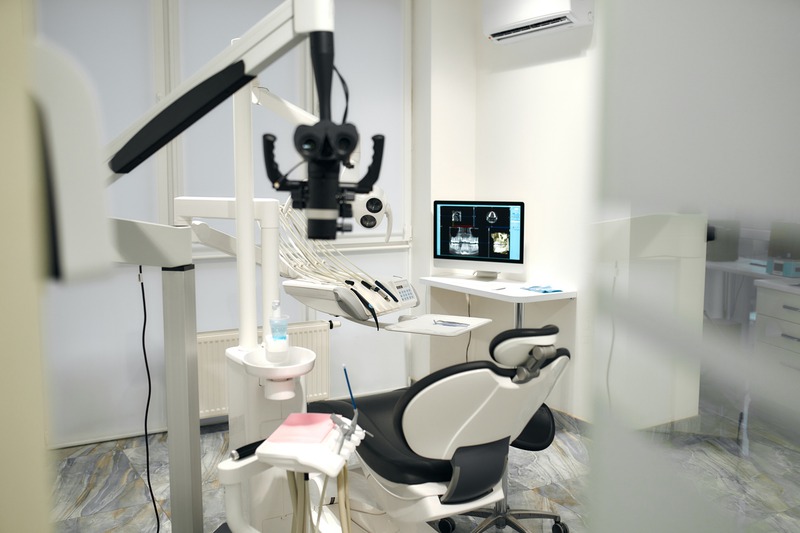For anyone considering dental implants, understanding the recovery process is as important as the procedure itself. While the thought of surgery might bring up concerns over downtime and discomfort, having a clear picture of what to expect can significantly ease anxiety. This article aims to address these common concerns by outlining the recovery timeline, factors affecting healing, and steps to ensure a smooth recovery journey. Whether planning for dental implants or preparing for recovery, this guide offers insights into what lies ahead and how to manage it effectively.
How Long Does Recovery Take?
The recovery time for dental implants varies but is often completed over a few months. Generally, patients return to regular activities within a couple of days post-surgery. Full recovery requires osseointegration, where the implant bonds with the jawbone, usually taking three to six months. Personal factors like health, the complexity of the procedure, and adherence to post-surgical care influence recovery timelines. Consulting with an experienced oral health provider can offer a more personalized estimate based on individual circumstances.
Factors Affecting Recovery Time
Several variables influence the speed and effectiveness of dental implant recovery. Below are key considerations:
-
Overall Health: Healthy individuals often experience quicker recovery times.
-
Bone Quality: Sufficient jawbone density can expedite healing.
-
Lifestyle Choices: Habits like smoking may hinder recovery.
-
Adherence to Aftercare: Following post-surgery care instructions is crucial.
-
Surgical Procedures: Additional procedures like bone grafts can extend healing time.
Discussing these factors with a dental professional ensures a better understanding of one’s specific recovery process and timeline.
Stages of Recovery
The healing process following dental implants typically unfolds in several stages. Here’s a brief overview to help grasp what to expect:
-
Initial Healing: The first 48 hours often require rest and icing to manage swelling. Gentle oral care and a soft diet are recommended.
-
First Week: Swelling and discomfort should diminish. A follow-up appointment will likely ensure healing is on track.
-
Osseointegration: During the following months, the implant bonds with the jawbone, a vital step for long-term success.
-
Final Adjustments: After osseointegration, the final crown or dentures are placed, marking the end of the recovery journey.
This timeline offers a framework, though individual experiences may vary. Consistent communication with oral healthcare providers can guide expectations and address any concerns.
Tips for a Smooth Recovery
The recovery period can be optimized through several practices geared toward healing and comfort. Here are some tips to expedite recovery:
-
Follow Instructions: Adhere closely to any guidance given by your dental surgeon.
-
Practice Good Oral Hygiene: Keep the mouth clean, but be cautious around the implantation area.
-
Avoid Irritants: Stay away from smoking and alcohol, as these can impede healing.
-
Adopt a Restful Routine: Allow adequate time for rest to support recovery.
-
Focus on Nutrition: Eat a balanced diet with soft foods to nourish the body during healing.
By integrating these practices, patients can create an environment that promotes a faster and smoother recovery process.
Regular follow-ups with a dentist are essential to monitor the healing process and address any emerging issues proactively. A professional can provide the necessary care and advice tailored to individual recovery needs.
Addressing Common Concerns
Dental implant recovery often raises similar concerns among patients. Addressing these questions can ease apprehensions:
Time Off Work: Most can return to work within a few days, although the exact timing may depend on the nature of one’s occupation.
Pain Management: Over-the-counter pain relief is typically sufficient, but seeking advice from a dental professional for personalized pain management can be beneficial.
Swelling and Discomfort: Such symptoms should be reduced within days. Persistence may warrant a check-up.
Travel Considerations: It’s advisable to stay local for the first few days post-surgery. Consultation with a dentist Colorado Springs can clarify any travel plans following the procedure.
Addressing these common inquiries provides clarity and confidence during the recovery phase.
Preparing for Dental Implants
Preparation plays a significant role in a successful recovery from dental implants. Consider these steps ahead of the procedure:
-
Schedule Thorough Consultations: Discuss expectations, procedures, and recovery plans with your oral health provider.
-
Arrange Personal Logistics: Plan for time off work, child care, or other needs during initial recovery.
-
Stock Essentials at Home: Prepare soft foods, ice packs, and any recommended medications.
-
Adopt Healthy Habits: If advised, quit smoking or address relevant health issues before surgery.
-
Educate Yourself: Understand the recovery process to set realistic expectations.
Being well-prepared lays a solid foundation for a smoother recovery journey. Consulting a professional like those specializing in dental implants Colorado Springs ensures comprehensive support from preparation to recovery completion.
Closing Remarks
Understanding the recovery process for dental implants provides patients with the knowledge needed to navigate post-surgery successfully. While the journey can vary by individual, following professional guidance and maintaining open communication with oral healthcare providers significantly supports positive outcomes. As patients embark on the path to restored oral health, they’re reminded that each step is a meaningful stride toward achieving a confident and lasting smile.

